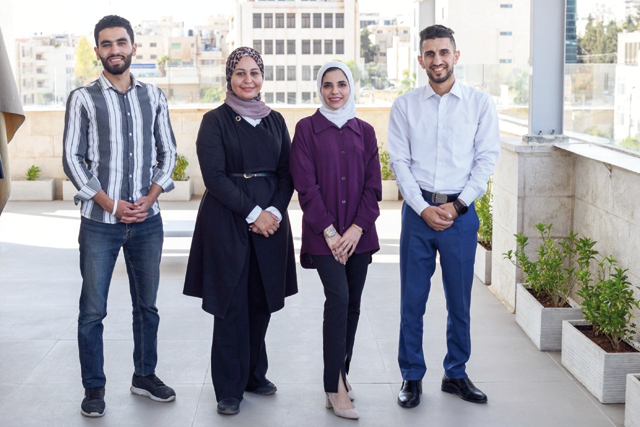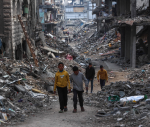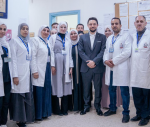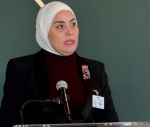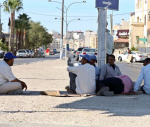You are here
Project serves over 3,000 through support, activism
By Maram Kayed - Jan 23,2020 - Last updated at Jan 23,2020
AMMAN — A project titled "Empowering Civil Society Organisations to Enhance Societal Cohesion", implemented by the Hayat Centre for Civil Society Development (Rased) and funded by the Norwegian Embassy, concluded its activities on Thursday with a dialogue session between participants and stakeholders.
The event included a presentation of the project's outputs, impact and success stories.
One such success story came from the Abu Alanda Association for Social Development, which said during the event that it has supported 300 families with monthly bread coupons since 2018 and given 100 families with orphans and widows annual monetary support amounting to a total of JD30,000 per year.
“We have also helped 1,000 vulnerable Jordanian and refugee families of different nationalities by distributing food parcels and home necessities. On a yearly basis, this runs up a cost of around JD80,000,” the association said.
For the small town of Abu Alanda, whose residents are "humble people", these contributions make a “significant difference”, the association noted.
During the event, participants in the project also had the opportunity to network with international and local institutions by showcasing their initiatives on the sidelines of the conference to secure more donations for their activities, according to the conference’s organisers.
The project worked to build the capacities of 15 civil society institutions from all governorates of the Kingdom that work on community dialogue and cohesion, peer education and project management.
The project also provided financial grants for participating institutions to implement their initiatives on the local level.
While some organisations channelled grants into monetary support programmes, others used them to work on a number of activism issues, such as the Ajloun-based Intermediaries of Change Centre, which tackled gender equality, political participation and human rights.
“Not all help comes in the form of monetary support, some comes in the form of opening the eyes of people who have not been exposed to trending global issues,” one of the centre’s employees said at the event.
“Some people have never heard of some issues that now occupy the world, and to keep them in the dark would be a great disservice,” she added.
The total number of the project’s beneficiaries exceeded 3,000 people, according to the conference’s agenda.
Related Articles
AMMAN — Deputising for His Majesty King Abdullah, Prime Minister Omar Razzaz is scheduled to arrive in Davos, Switzerland, on Tuesday to par
AMMAN — The Royal Medical Services (RMS) on Monday announced that it is scheduled to hold its ninth international conference in late Novembe
AMMAN — Four Jordanian youth from different governorates are joining the official delegation of the Hashemite Kingdom of Jordan in the 27th


